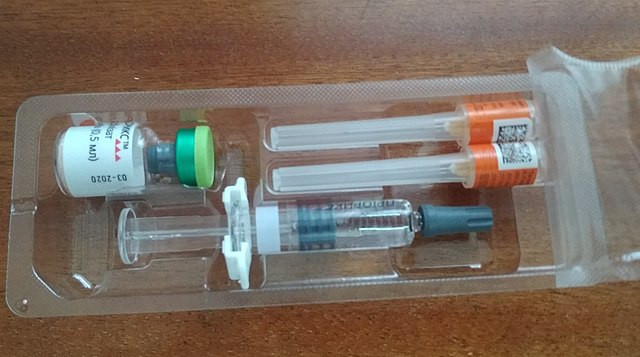A staggering rise in measles cases globally has reignited concerns among health officials, with new data from the World Health Organization (WHO) revealing that more than 10.3 million people contracted the virus in 2023-a 20% increase from the previous year. Nearly 107,500 lives were claimed by the disease, with children under the age of five bearing the brunt, according to the report released Thursday.
The resurgence of measles, which manifests as a highly infectious rash accompanied by fever, cough, and other symptoms, is tied to declining vaccination rates. "The alarming rise in measles cases globally and here in the U.S. is a stark reminder of the consequences of falling vaccination rates," said Dr. John Brownstein, chief innovation officer at Boston Children's Hospital. He emphasized that the surge has been exacerbated by disruptions caused by the COVID-19 pandemic, which saw millions of children miss routine vaccinations. Approximately 96% of cases reported in 2023 involved children who were not fully vaccinated.
Measles is preventable with two doses of a highly effective vaccine, but achieving community protection requires at least 95% coverage. However, global vaccination rates have plummeted, with only 81% of children receiving their first dose during the pandemic-the lowest rate since 2008, WHO data showed. "We're now seeing the ripple effects of those missed doses," Brownstein noted, stressing the need to "strengthen vaccination campaigns and public health initiatives."
In the United States, measles cases have spiked alarmingly in 2024, with the Centers for Disease Control and Prevention (CDC) reporting 277 cases across 30 states and the District of Columbia-more than four times the 59 cases seen last year. Sixteen outbreaks, defined as three or more related cases, have been recorded this year compared to four in 2023.
The CDC has recommended two doses of the measles vaccine, with the first administered between 12 and 15 months of age, followed by a second dose between four and six years. "We need to remember that the reason we have these childhood vaccines is to make sure that we are the strongest, the healthiest that we can be as a community," CDC Director Dr. Mandy Cohen told CNN's Meg Tirrell during a discussion at the Milken Institute's Future of Health Summit.
Globally, a disturbing trend has emerged, with the number of major measles outbreaks surging by 60% in 2023, impacting nearly every region. Fifty-seven countries reported large-scale outbreaks, up from 36 in 2022. Particularly hard-hit regions included Africa, where gaps in vaccine coverage contributed to significant outbreaks.
"Measles vaccine has saved more lives than any other vaccine in the past 50 years," stated WHO Director-General Dr. Tedros Adhanom Ghebreyesus. He called for renewed investment in global immunization efforts to reach underserved populations. "To save even more lives and stop this deadly virus from harming the most vulnerable, we must invest in immunization for every person, no matter where they live," Dr. Tedros urged.
While some areas experienced a decrease in measles-related deaths in 2023, the decline was attributed to outbreaks occurring in regions with better access to healthcare and nutrition rather than a reduced virulence of the virus. In many poorer regions, children with weakened immune systems due to malnutrition remain at heightened risk of severe complications, including pneumonia and encephalitis.






